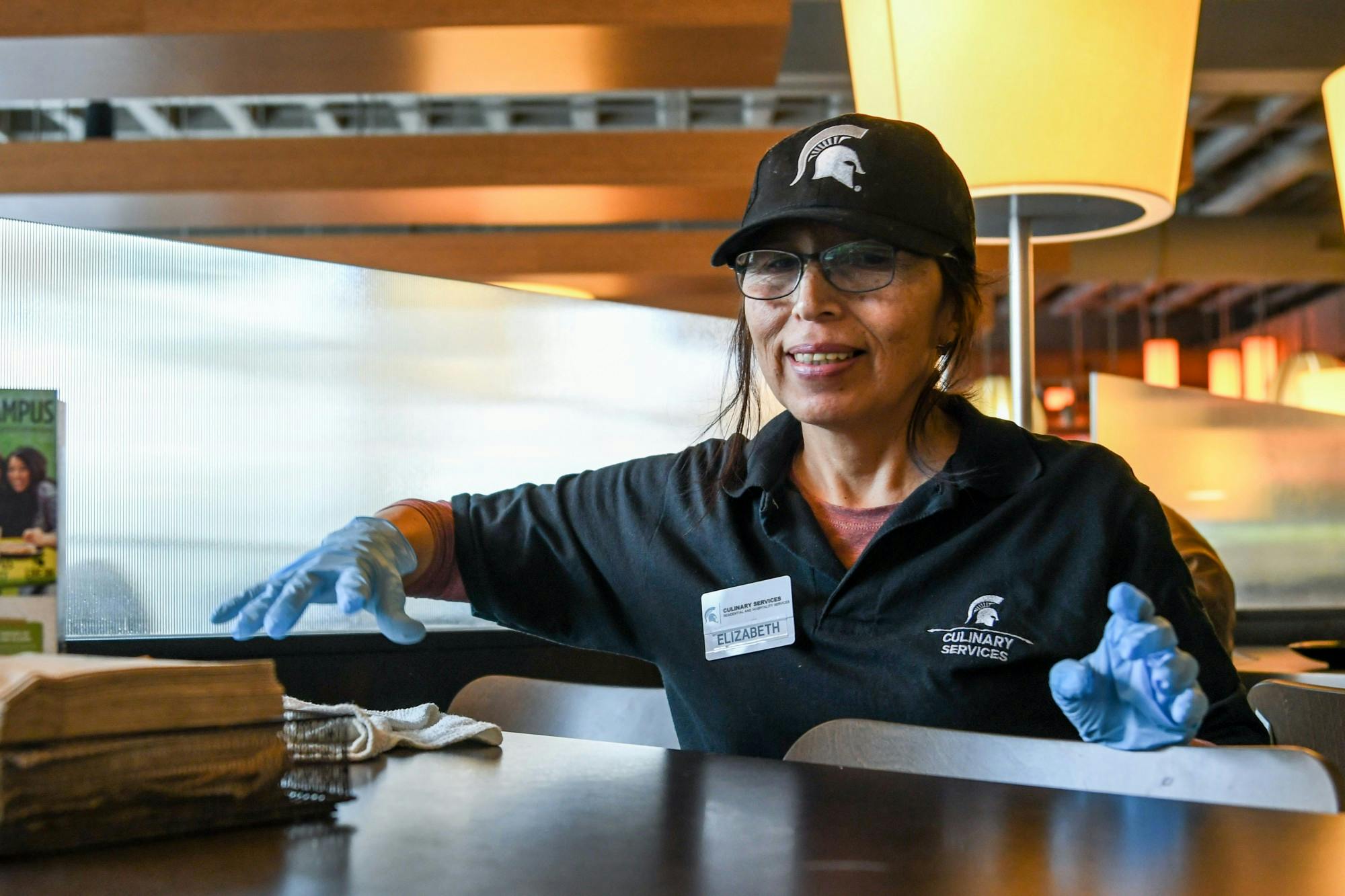Reports of students with gastrointestinal illness worried some students about eating in the Brody and Case dining halls.
The sickness was not the result of food poisoning, said Dan Olsen, MSU's deputy spokesperson.

Elizabeth, a dining hall employee, cleans the tables at Shaw on Jan. 23, 2020.
Reports of students with gastrointestinal illness worried some students about eating in the Brody and Case dining halls.
The sickness was not the result of food poisoning, said Dan Olsen, MSU's deputy spokesperson.
Foodborne illnesses are rare on MSU's campus but it is easy to attract a virus if you are not careful, Olsen said.
“Each day (food service employees) work to make sure that the hot foods are kept hot and the cold foods are kept cold,” Dan Olsen said. “They do that by taking the temperature of the food products that they serve.”
The last food poisoning outbreak at MSU, in 2009 reached at least 30 students who had a norovirus that spread quickly, causing MSU to close the Shaw Hall cafeteria, according to an article from MSU Today.
He said it is important to report any dining hall food that looks unusual so someone can take action immediately.
English professor Sheila Contreras said one of her students missed classes because of illness around the time students reported having stomach symptoms.
“There were two people who said they had been ill with what was going around,” Contreras said.
Be wary of self-serve food
Inside the dining halls, students have some self-serve stations at their disposal, but after reports of sickness, there are employees tasked with serving for those stations, Olsen said.
"MSU's residential dining halls took the preventative measure of placing servers at the self-serve station to reduce the number of people touching the serving utensils," Olsen said via email.
Human Biology senior Bri Griffin said self-serve food can be replaced if people are reporting they're getting sick after eating at the cafeteria.
"From things that have been going on lately, I don't think it's the healthiest," she said.
Self-serve food in the cafeterias makes students concerned about their health. Kinesiology senior Josie Boike said she prefers when the employees in the dining halls serve the food.
"It is a little nerve-wracking because ... I don't really know if people are treating the self-serve food properly or handling it correctly," she said.
How sick is too sick?
MSU's sick tray program helps students avoid disease spread by permitting a friend or roomate to pick up cafeteria food for someone feeling ill.
Boike said it is concerning when students cough frequently in the dining hall, and if a student has to miss class because of sickness it may be best not to eat in the cafeteria.
Animal science senior Sydney Holt agrees that if students are always coughing it is also a sign that students should stay away from the cafeteria.
"If you have the flu and you can't contain it, then you shouldn't show up," Holt said.
Support student media! Please consider donating to The State News and help fund the future of journalism.
A good way to prevent food poisoning is to avoid eating food in the morning that was left out overnight, Olsen said.
“Make sure you’re eating from licensed food vendors,” he said. “If it's not a licensed food facility, you may want to double check and reconsider your options.”
The Centers for Disease Control and Prevention recommends washing your hands and countertops often. You are less likely to experience food poisoning by avoiding undercooked and raw foods.